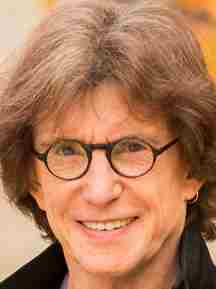the vital role of
EDUCATION IN AUTHORITARIAN TIMES

by
HENRY A. GIROUX
__________________________________________
Henry
A. Giroux currently holds the Global TV Network Chair
Professorship at McMaster University in the English and Cultural
Studies Department and a Distinguished Visiting Professorship
at Ryerson University. He is the author of more than 50 books
including The Educational Deficit and the War on Youth
and Zombie
Politics and Culture in the Age of Casino Capitalism.
Many of his essays, including The Spectacle of Illiteracy, appear
on his website at www.henryagiroux.com.
His interview with Bill
Moyers is must viewing. He was recently named one of
the century's 50 most significant contributors to the debate
on education.
Print
this page
YOUR
COMMENTSFor decades, I have challenged the notion
that schools are simply black boxes mired in structures of domination.
While the early leftist criticism of schooling was correct in
challenging the idea that schools were agencies of meritocracy
and equal opportunity removed from larger structures of capitalist
domination, it lacked, with few exceptions (such as Paul Willis's
Learning to Labour), any sense of resistance, and as
such lacked any notion of hope. Resistance and hope, coupled
with a comprehensive understanding of theory, politics and education,
have played a crucial role in my later work, particularly in
my later analysis of the war on youth, the centrality of pedagogy
to cultural studies, neoliberalism's assault on higher education
and other related issues.
In
July 2017, I was fortunate to participate in an interview that
attempted to look at the totality of my work on education, cultural
studies, pedagogy, youth studies and a range of other topics.
The interview, captured here in a just-released film debuting
on Truthout, begins with an analysis of the historical
conditions that produced one of my most important books, Theory
and Resistance in Education, and that had a formative influence
it had on much of my of my later work.
The
interview also deals with the challenges of resistance today,
given the power of modes of pedagogy that exist outside of schools,
particularly under the toxic regime of neoliberalism. Not only
have the sites or modes of pedagogy expanded in a range of cultural
apparatuses extending from digital and print culture to screen
culture, but the very spaces for sustained and critical thought
have been shrinking.
At
the same time, new spaces of resistance have opened up in light
of the emergence of new technologies, the increasing radicalization
of young people and the search for a new understanding of politics,
one that makes sense of the relationship between local politics
and global power formations. The interview explores these new
sites of hope. It also explores how both public schools and
higher education have come under assault by a range of ideological,
cultural and economic forces tied to a variety of right-wing
and conservative ideologies and fundamentalisms -- religious,
market-based, military-oriented, racist and sexist. Due to all
of these forces, there is an urgent need to retheorize matters
of education, power and politics itself.
One
of the central elements of discussion in the interview is the
issue of border crossing and the politics of disposability.
This politics points to not only new forms of domination, but
also suggests rethinking politics beyond simply questions of
exploitation. In other words, capitalism no longer simply exploits
as its main engine of domination; it now renders increasing
numbers of people disposable -- whether we are talking about
Muslims, workers, youth of color, poor Black communities such
as Flint, Michigan, or an increasing number of other groups.
Disposability is the register of a new politics of oppression
central to the emergence of financial capital, and it must be
addressed as part of a new mode of politics and global resistance.
Disposability points to distinct economic, political and cultural
contexts in which new forms of exclusion are entangled with
emerging modes of authoritarianism that are reshaping matters
of ideology, knowledge and power. The logic of disposability
has become the driving force of a powerful machinery of social
death.
Also
vital to address in these oppressive times is a narrow notion
of dystopia, which is now attached to almost any form of criticism.
Rather than opening a window to the need for real struggles,
this notion of dystopia collapses into the discourse of cynicism.
In the interview, I reject this view by making clear that criticism
is the precondition for not only changing consciousness, but
also making visible new forms of domination and power that have
to be confronted if people are going to be able to understand
the oppressive conditions in which they find themselves. Rather
than insert criticism, dialogue and the social imagination within
the toxic charge of a distorted and reactionary notion dystopia,
the interview addresses criticism and the existing conditions
of oppression as a starting point for individual and collective
forms of struggle. The engagement with dystopia in this case
is a precondition for developing a discourse of both critique
and hope, not despair.
It
is crucial for us to address this question head on: What is
the role of public and higher education, especially in a time
of tyranny? What does critical pedagogy look like and how is
it put into play so as to make a viable and lasting connection
between learning and critical thought, engaged agency and social
responsibility, learning and social change? Central to this
interview is the point that education is crucial to politics
itself, and that any viable sense of theory, politics and resistance
will have to address this issue.